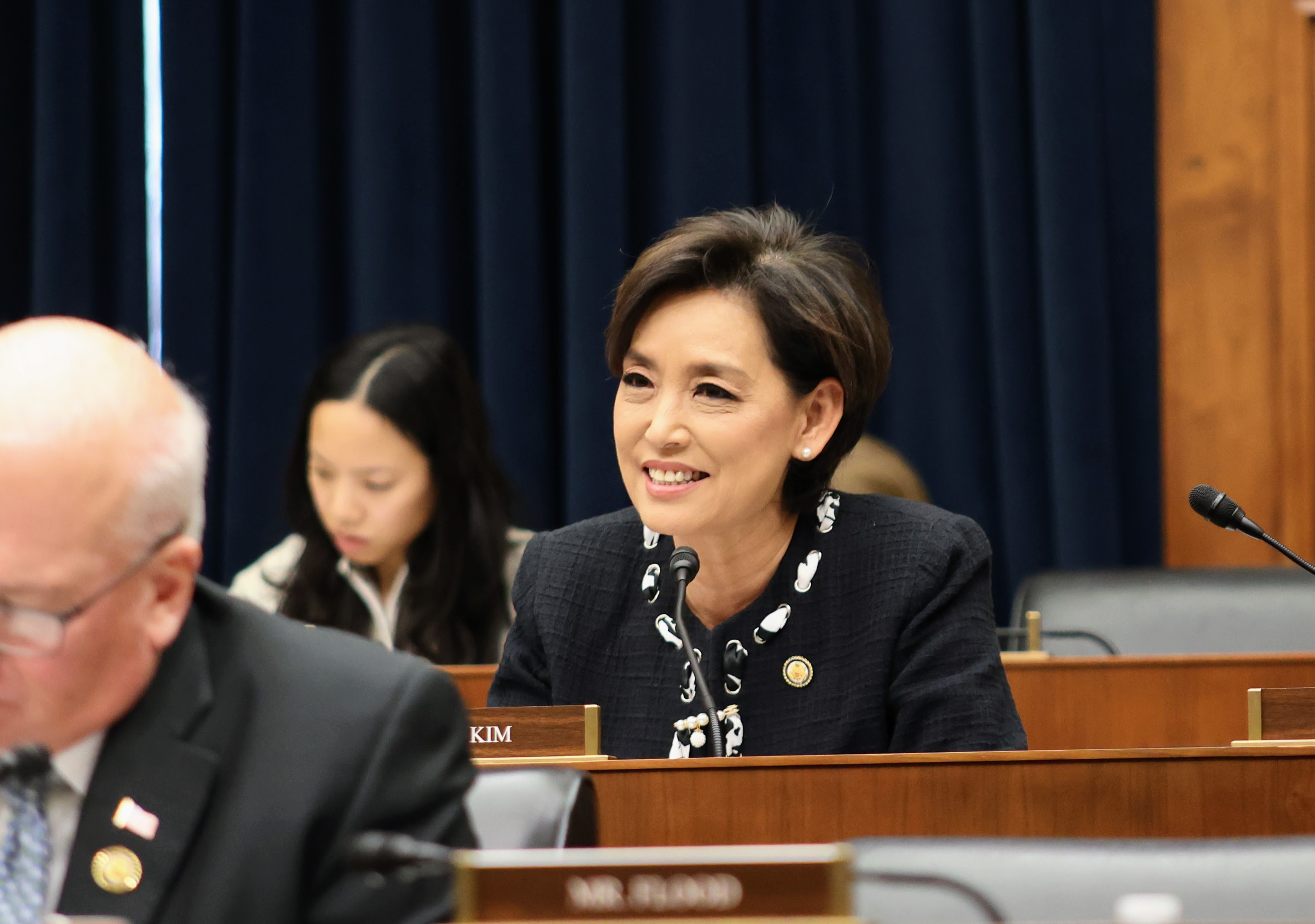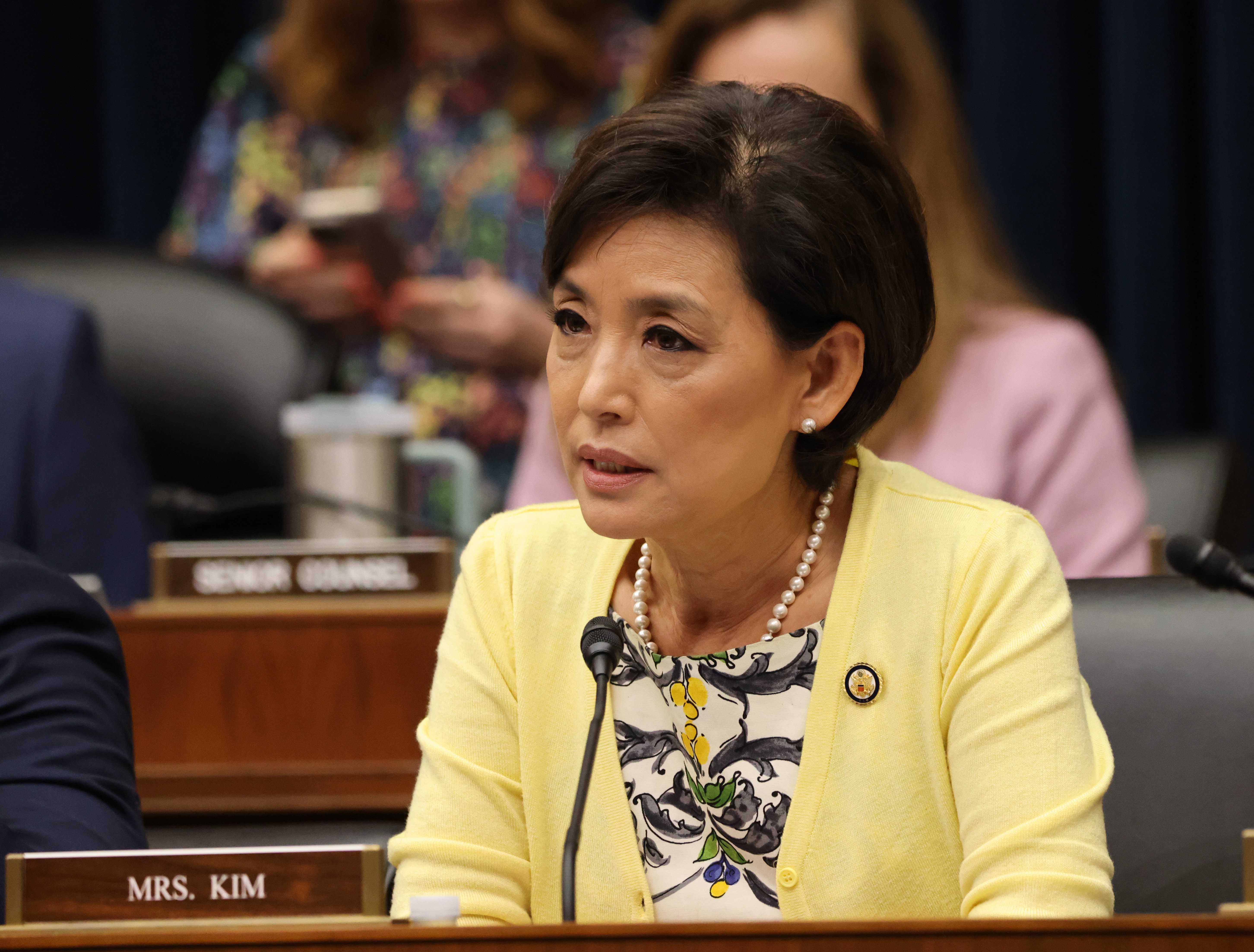Tougher trade rules. Higher tariffs on Russian-made goods. Siccing the IRS on Kremlin-linked oligarchs. Digging for gold.
Lawmakers successfully pressured President Joe Biden into announcing a ban Tuesday on the U.S. import of all Russian energy, including oil, as further punishment against President Vladimir Putin for Moscow’s unprovoked invasion of Ukraine.
But Biden’s ban isn’t enough for many lawmakers on both sides of the aisle. The prohibition on Russian energy checks one box off the Congressional wish list, but Capitol Hill continues to explore other avenues in supporting Ukraine and penalizing the Kremlin.
The economically punitive measures include a permanent ban on Russian energy imports, imposing sanctions on anyone selling gold physically or electronically in Russia, closing loopholes in the U.S. tax system aimed at preventing Russian oligarchs from hiding assets and increasing efforts to crack down on money laundering schemes benefitting Kremlin allies.
Many of the proposed measures would hit Moscow on trade, seeking to revoke Russia’s Permanent Normal Trade Relations status and provide the president authority to raise tariffs on a host of Russian products.
The goal is to squeeze Russia’s pocketbook by raising the cost of goods and services exported to the United States, ultimately convincing American consumers to buy from other countries.
Bipartisan vote as Congress targets Russia
Lawmakers took the first step Wednesday, overwhelmingly passing legislation that not only includes the ban on Russian oil and energy products but provisions to end normal trade relations with Russia and neighboring Belarus (a close ally to Moscow) and require the U.S. Trade Representative to work towards booting Russia from the World Trade Organization. The bill also would strengthen the Global Magnitsky Human Rights Accountability Act to impose further U.S. sanctions on Russia.
“The more economic pain we inflict on Putin, the more pressure he (Putin) will feel to finally end his brutal campaign of terror on the Ukrainian people,” House Ways and Means Committee Chairman Richard Neal, D-Mass., said on the floor before the vote.
Nelson Dong, a Seattle-based lawyer and trade expert with Dorsey & Whitney LLP, cautions the moves on trade probably won’t result in significant short-term pain for Moscow considering Russia ranks 26th in terms of U.S. trading partners.
The amount of goods traded between the two nations in 2019 was $28 billion, with most of that – $22.3 billion – coming from Russia, according to the Office of the U.S. Trade Representative.
Dong said the ban is a natural reaction from Congress “because it’s the only soft power tool, really in the toolbox” short of military action.
“I think those are all very symbolic and very long term kinds of plays,” he told USA TODAY. “If you’re not buying that much from Russia in the first place… is that going to move anybody’s needle?”
The bill now heads to the Senate. But Sen. Chris Murphy, D-Conn., a member of the Senate Foreign Relations Committee, told reporters Tuesday that he doesn’t think further action on the legislation is needed by Congress now that Biden announced the energy ban.
“My interest is in giving the president the maneuvering room he needs to stay as tight with our allies as possible,” Murphy said. “So if the president’s already banning Russian oil, I’m not sure why we need to dictate the terms of it.”
Aid to Ukraine
The House Wednesday also approved $13.6 billion in aid to Ukraine as part of a $1.5 trillion spending bill to fund the federal government through Sept. 30.
The package is split among humanitarian aid, defense and economic assistance, and sanctions enforcement.
It would support refugees fleeing Ukraine and aim to back Ukraine and other allies’ defense capabilities against Russia. The legislation also would fund the Department of Commerce, Department of Justice and the Department of the Treasury to develop and enforce sanctions and respond to cyber threats coming from Moscow.
The package is another tool to back Ukraine, but far from the end. Murphy predicted a larger aid package down the line.
“This is going to have to be one of the most significant international rebuilding efforts that we’ve ever undertaken, given the images we’re seeing,” he said. “I think this is likely to be a pretty meager down payment in the long term.”
Going for the gold
Senate Finance Chairman Ron Wyden, D-Ore., is leading the charge on pursuing the Russian oligarchs close to Russia’s persident, saying decisive action in Washington would “send a clear message to Putin that the invasion of Ukraine will have devastating consequences for his regime.”
Wyden wants to close loopholes he says exempt private equity and hedge funds from implementing basic anti-money laundering requirements. He wants to increase disclosure regarding the foreign owners of private investment funds and require financial institutions to end certain agreements with Russian banks that have permitted oligarchs to evade sanctions.
And he wants his committee to examine tax loopholes that let the wealthiest Russians stash assets, often untaxed, in the United States.
Other lawmakers are taking creative approaches to counter Russian aggression.
A bipartisan group of senators, for example, introduced a bill to punish anyone who transports gold from Russia’s central bank holdings or sells gold in Russia.
“This bipartisan bill closes a critical loophole that allows Russia to sell off its gold reserves to prop up its economy,” said Sen. Maggie Hassan, D-N.H.
“Congress must make it harder for Putin to liquidate Russia’s gold and use those proceeds to fund its invasion of Ukraine,” said Sen. Bill Hagerty, R-Tenn., a member of the Foreign Relations Committee.
Similar efforts to pin down Putin and his allies have emerged in the House.
Republican Rep. Young Kim of California and Democratic Rep. Elissa Slotkin introduced the Direct Investigations on China, Take Action to Oppose Russia (DICTATOR) Act. The bill would require Secretary of State Antony Blinken to update Congress on whether the Chinese government is assisting Putin and helping the Russian president to evade sanctions.



